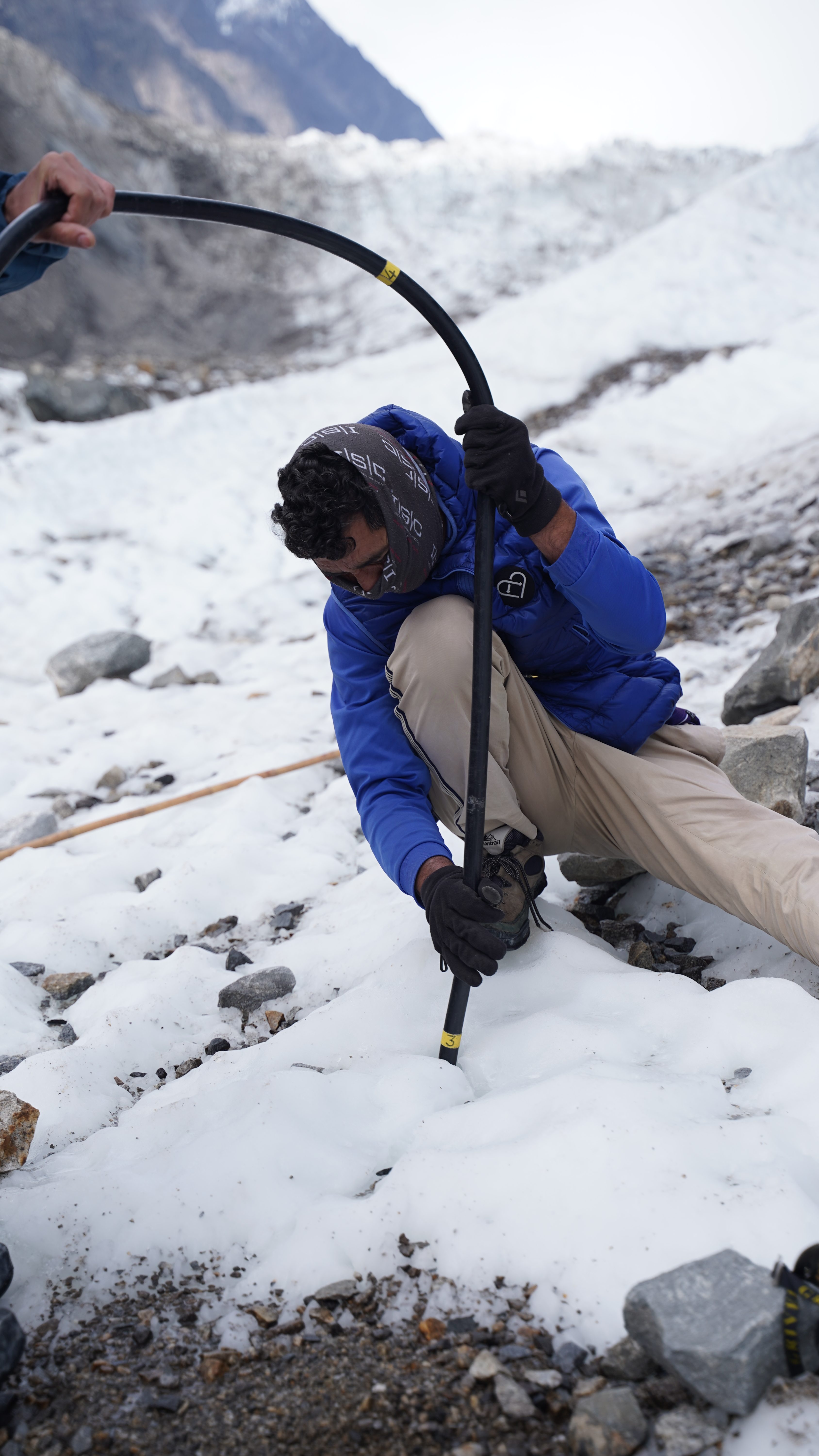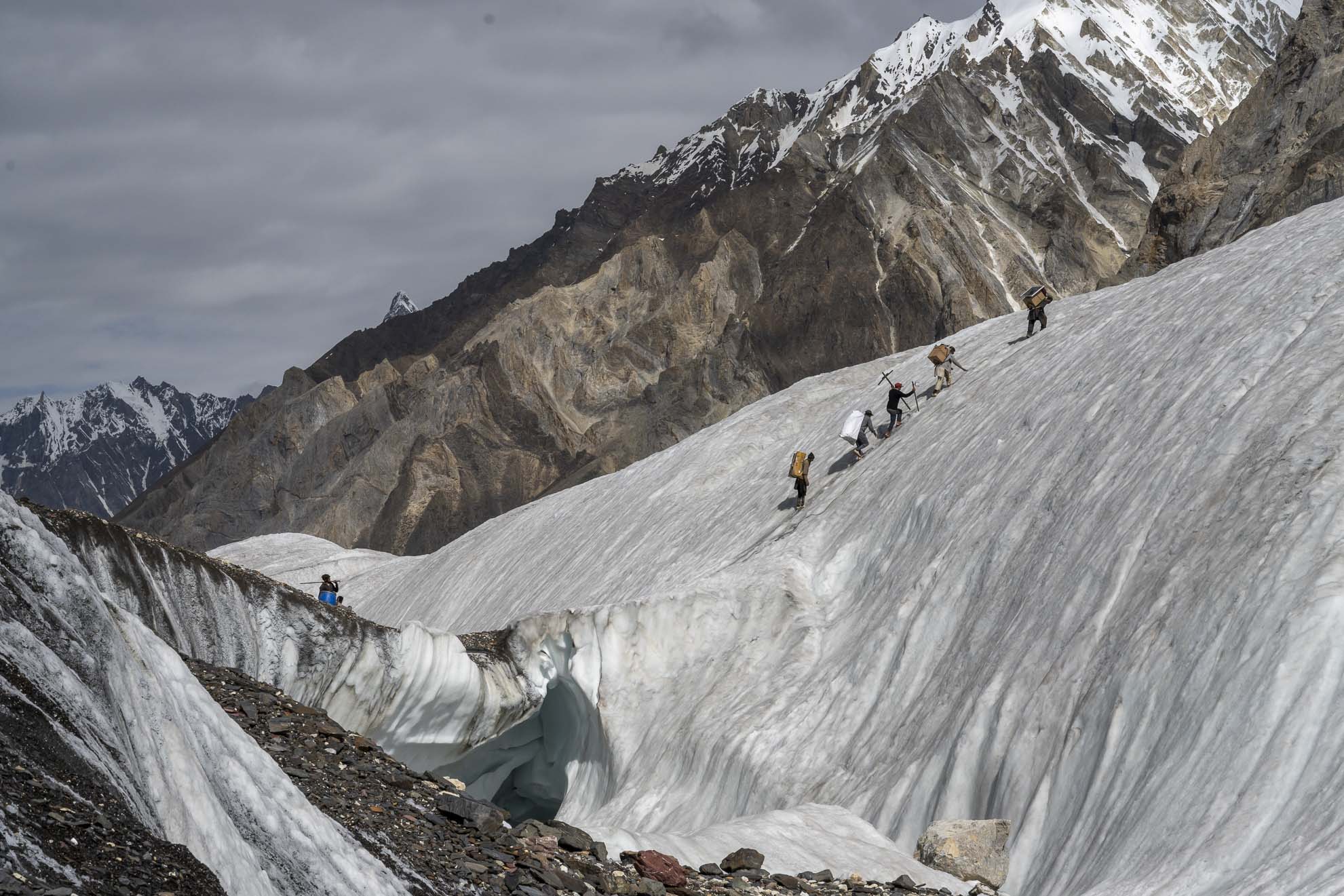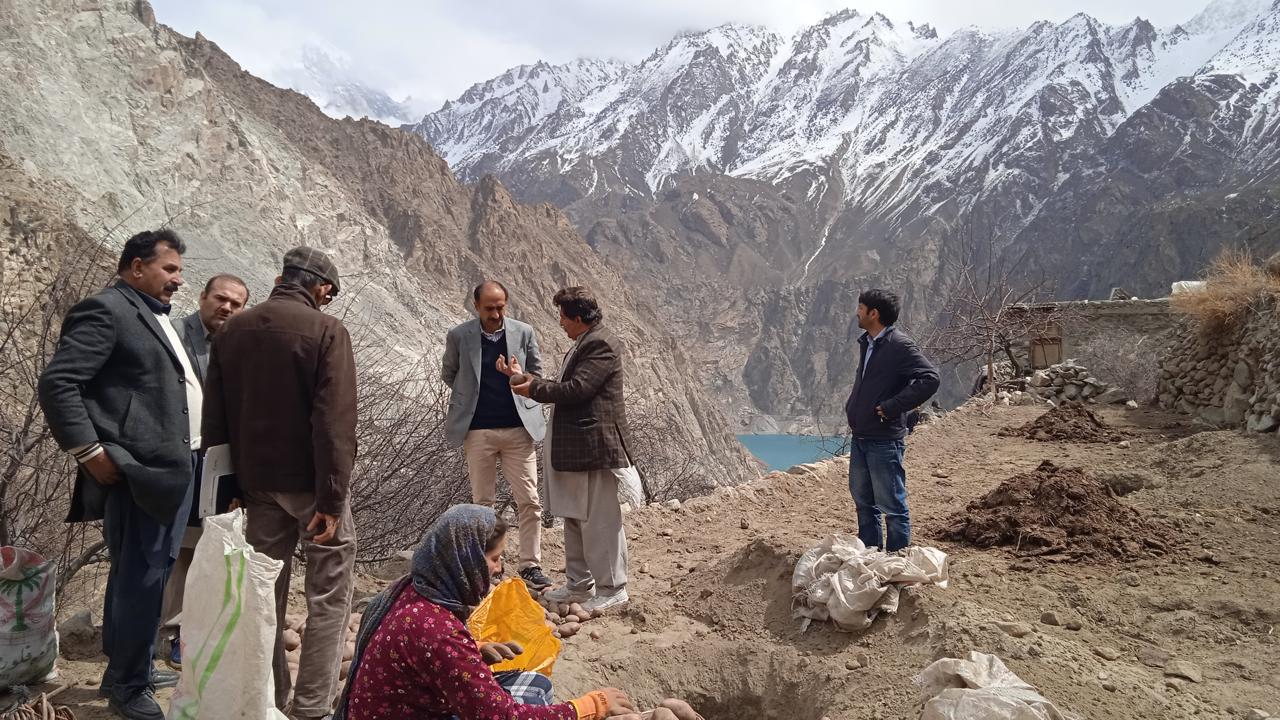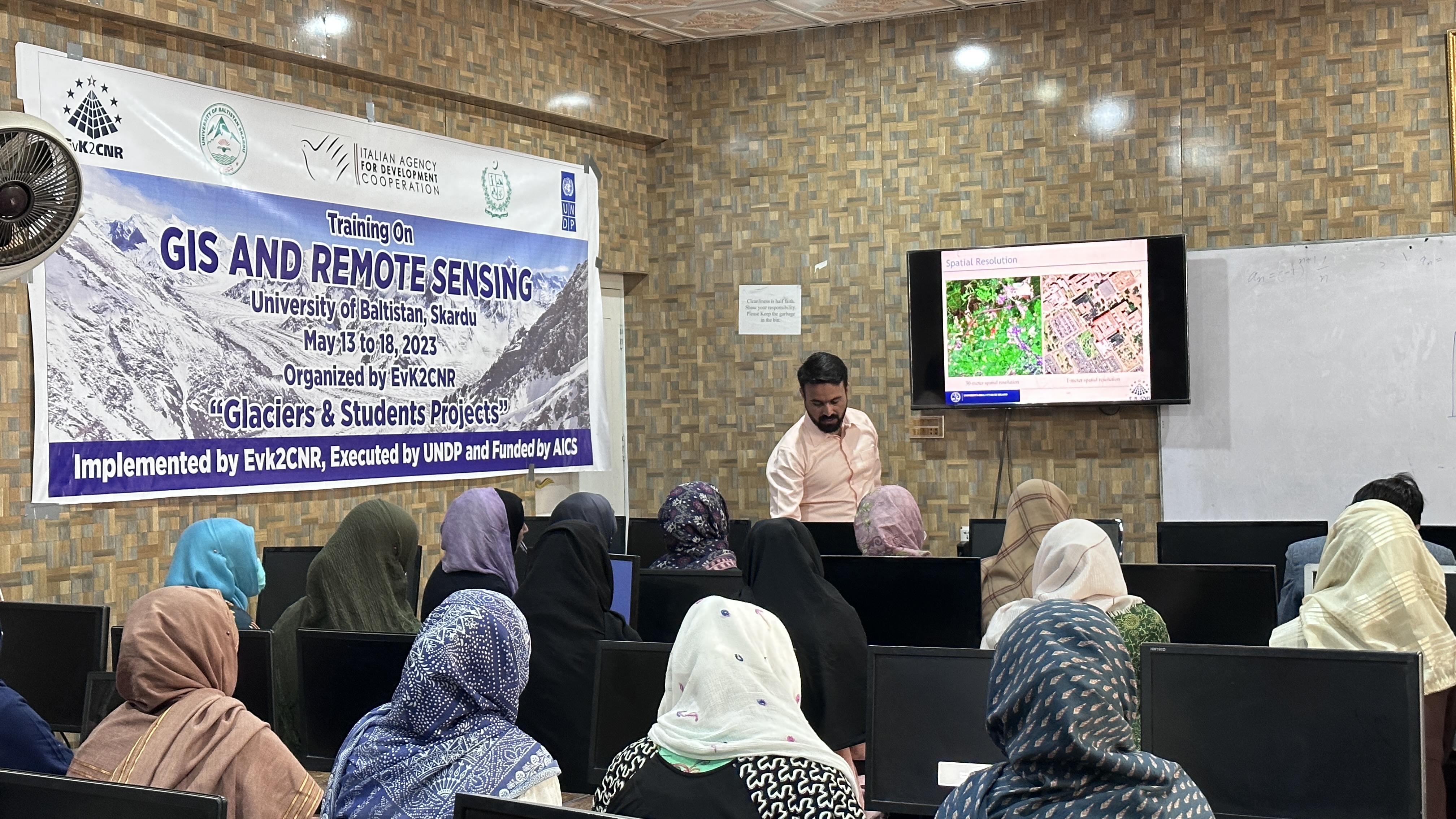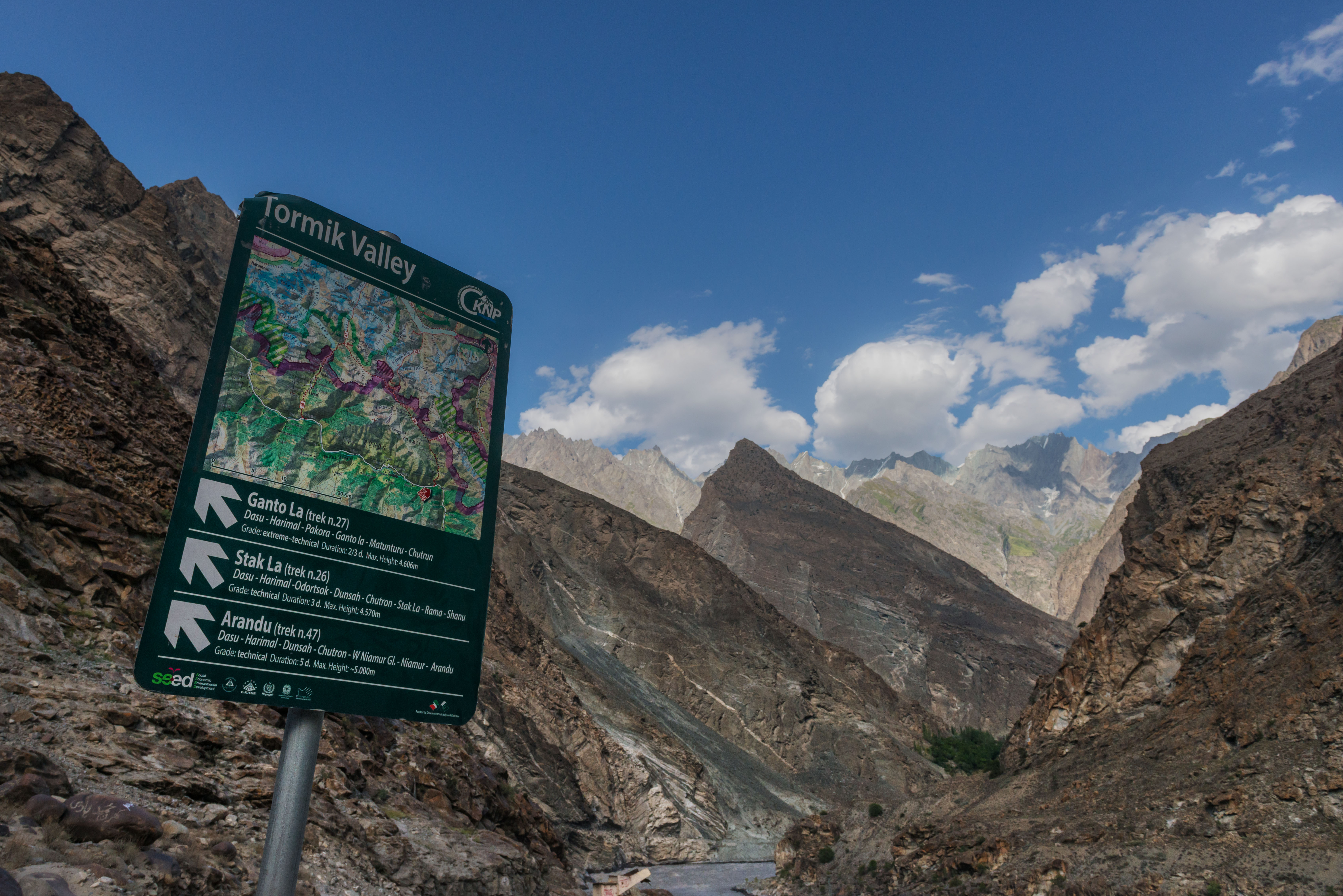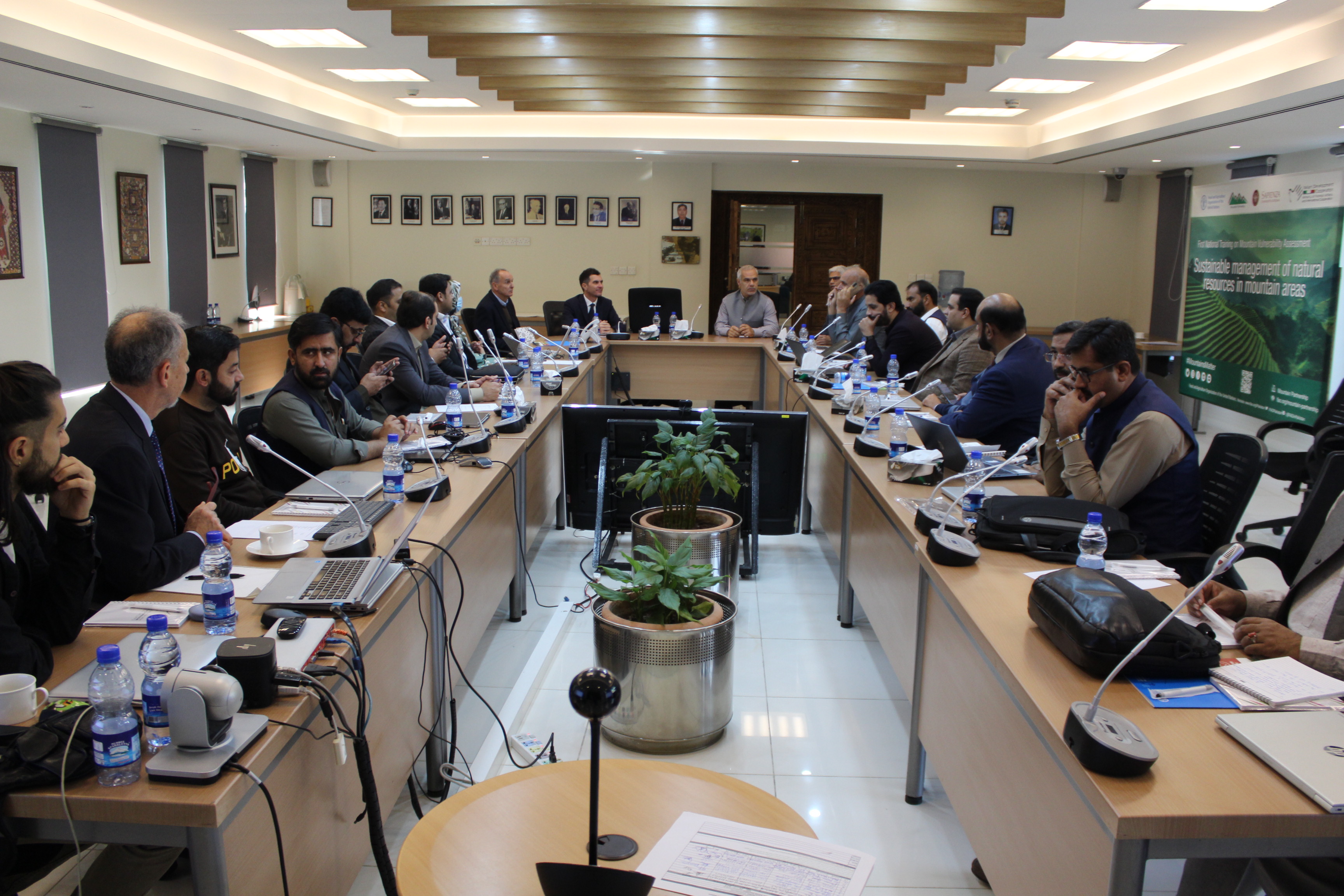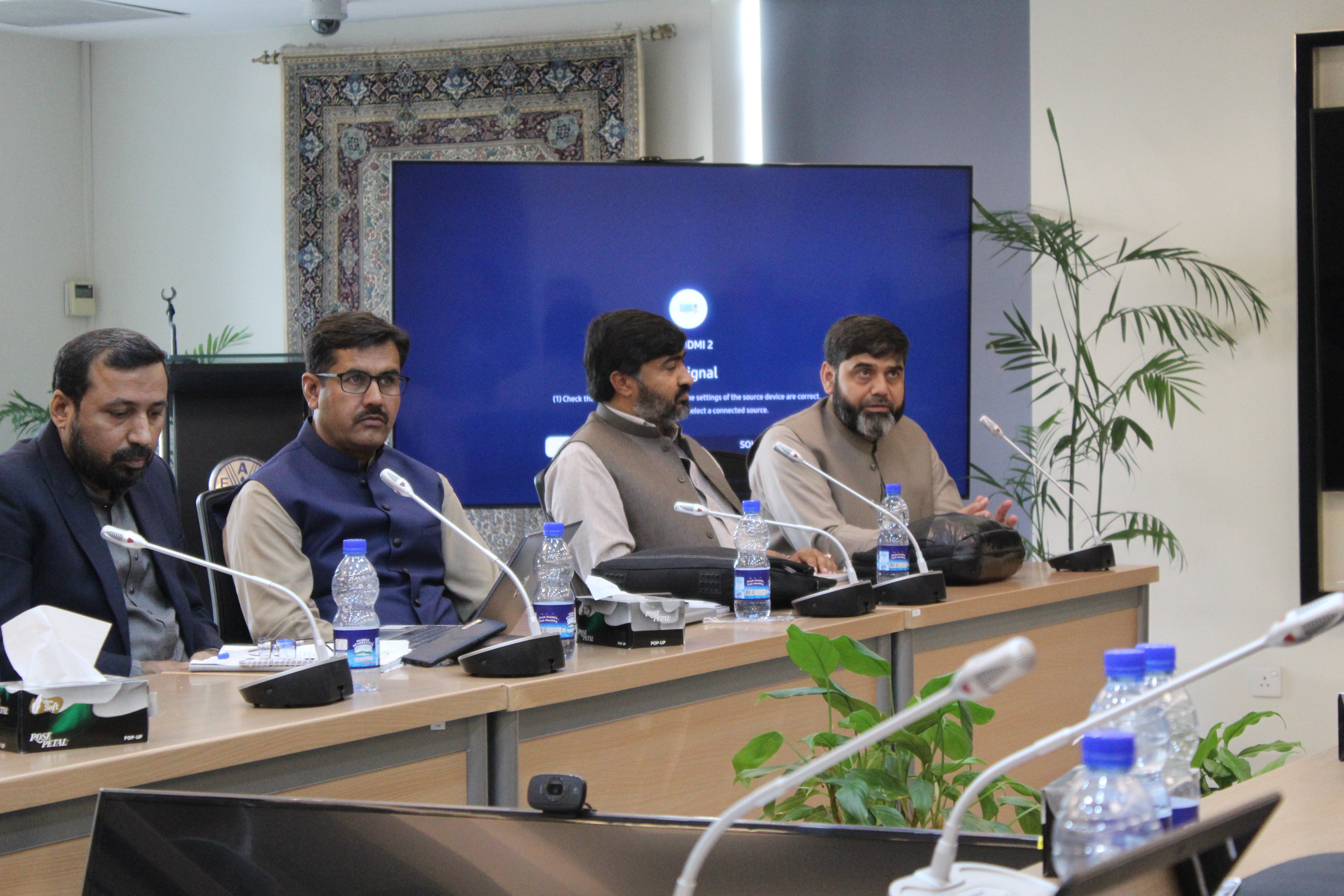SECTORAL CONTEXT
Pakistan is among the most vulnerable countries to climate change, increasingly affected by extreme events such as floods and droughts. In the Environmental Performance Index (EPI) 2024, Pakistan ranks 179th out of 180 countries, confirming an alarming environmental
performance.
The 2022 floods contaminated soil and water resources, reducing soil fertility and threatening the food security of millions of people. Habitat loss and soil erosion have aggravated environmental degradation, affecting biodiversity. The combined impact of these extreme weather events is significant. World Bank estimates that environmental degradation and pollution will lead to a 18-20% reduction in Pakistan’s GDP by 2050 (World Bank, 2022).
The country is exposed to four categories of flooding: river (Indus basin), flash, glacial lake spill (GLOF) and coastal (cyclone). In particular,
according to the INFORM 2025 Index for Risk Management (EU), the risk of river flooding is among the highest in the world, with a score of 9.5 out of 10, making Pakistan the sixth most at-risk country out of 191.
Access to safe drinking water and sanitation remains critical, especially in rural areas lacking adequate infrastructure. Contamination and
inefficient management of water resources threaten public health. With a rising demographic trend, in the order of millions per year, and an
estimated temperature increase of 3°C by 2047, water demand is expected to grow by 60% (World Bank, 2025).
Another significant issue is poor air quality, particularly in urban areas. In the second half of 2024, record levels of pollution were recorded,
with cities like Multan experiencing PM 2.5 concentrations 190 times higher than the WHO’s recommended limits. This has led to respiratory problems, especially among the most vulnerable groups, particularly children under five. The primary causes of this pollution include the burning of agricultural waste, as well as emissions from industries and vehicles. The balance between agriculture and water
resources is a critical challenge for Pakistan, particularly in the upper Indus basin, where 45% of water flow depends on glacier and snowmelt. To ensure sustainable management, it is essential to develop integrated glaciological-hydrological models to predict future water availability and establish effective water quality monitoring systems.
With the increasing demand for water, improving irrigation efficiency and optimizing water resource management are key priorities to ensure food security and strengthen the resilience of the agricultural sector.
To enhance the resilience of rural communities, the implementation of anticipatory action systems linked to multi-hazard early warning
systems can significantly reduce economic and human losses. To enhance the resilience of rural communities, the implementation of anticipatory action systems linked to multi-hazard early warning systems can significantly reduce economic and human losses.
Complementary solutions, such as agricultural insurance and social protection measures, can help mitigate risks associated with extreme
climate events. Sustainable tourism and the development of alternative employment opportunities are key strategies for economic and environmental progress. Actively engaging communities — particularly women — in land management and the enhancement of natural resources is essential for improving household incomes. In this context, forest restoration and the development of resilient agri-food value chains play a central role, contributing to both economic and environmental sustainability.
Moreover, air pollution is an increasingly urgent challenge. The implementation of an effective monitoring network would help identify pollution sources and enable the adoption of targeted measures to improve air quality and public health
APPROACH
AICS Islamabad Office , in the field of climate change adaptation and risk reduction, aims to strengthen the resilience of communities and
institutions to climate risks and natural disasters. It promotes ecosystem protection, sustainable natural resource management, and inclusive development models that improve the economic and social conditions of the most vulnerable groups.
Within the Planet pillar of AICS’s Theory of Change (TOC), and through an integrated approach, AICS supports adaptation strategies and
responsible management, contributing specifically to the achievement of SDG 13 (Climate Action), with a focus on Target 1:
Strengthening resilience and adaptive capacity to climate-related risks and natural disasters.
In Gilgit-Baltistan, AICS has been working for over a decade to promote the sustainable development of mountain areas in collaboration
with civil society organizations, institutions, and local authorities. Interventions focus on improving the management of natural resources,
particularly water, and on ecosystem conservation.
Special attention is given to ecotourism as a driver of sustainable economic development, leveraging local natural and cultural heritage.
Women’s participation in land and resource management is also encouraged, fostering their active involvement in decision-making processes and economic activities. Additionally, support for research on mountain ecosystems enables the development of effective conservation strategies and sustainable development models compatible with the area’s environmental fragility.
In Sindh, AICS activities aim to integrate anticipatory actions, nature-based solutions, and climate-resilient agricultural practices. Technical
assistance plays a key role in strengthening local capacities in early warning systems, participatory planning, and inclusive governance, all of which are essential for ensuring financial sustainability through the mobilization of both domestic and international resources.
